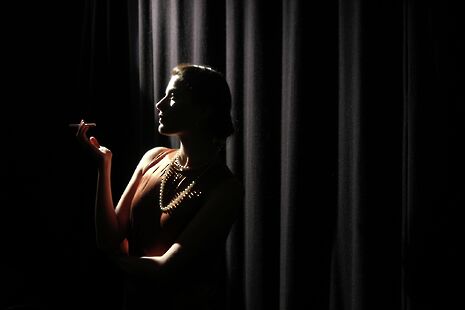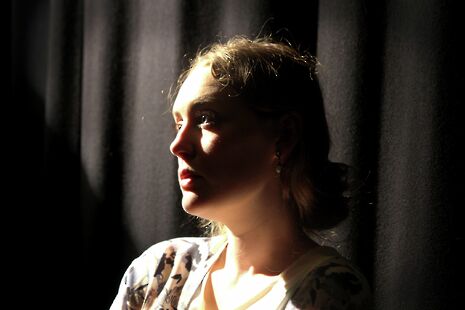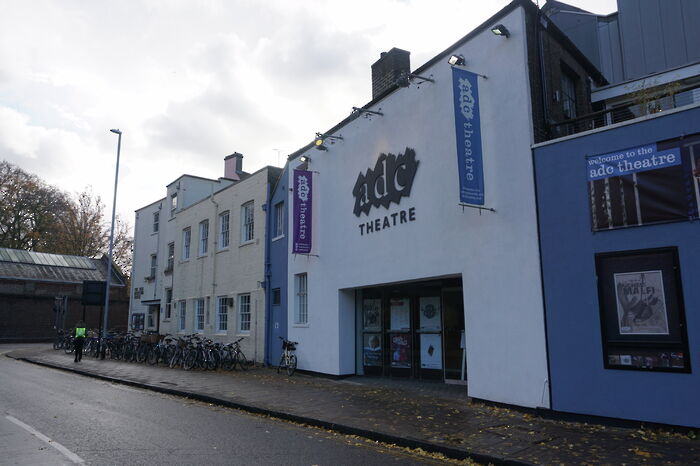Filling in the silhouettes: Vita & Virginia preview
‘The lure of your mind and the lusts of your flesh’: Iris Pearson finds in Vita and Virginia a show which trembles with the passionate and the intellectual

Spend a summer reading the diaries of Virginia Woolf, and it’s impossible not to want to meet her and the people who moved around her. The words of her diaries and her letters seethe with the intellectual, with perfectly-placed adjectives, as she navigates the light and dark of literary society in the 1920s. It is these letters, specifically the ones written between Virginia and her lover Vita Sackville-West, which Eileen Atkins has adapted into the play ‘Vita & Virginia’, and which Sarah Taylor and her wonderful women are bringing to the Corpus stage next week.
The words of this play tremble between the intellectual and the erotic, interspersing discussions about the latest publications and criticism with expressions of tenderness, revealing a relationship fraught with paradox, tension and intensity. Emmeline Downie (Virginia) and Corinne Clark (Vita) have never acted together before, hadn’t even met before the call-backs for this play, but there is something so intuitive in their connection. These two have studied their characters in exquisite detail, reading biographies over the summer and realising how much they have in common with their characters. They seem to feel a real affinity with Virginia and Vita.
"there is something wonderful in following the trains of thought of these two influential figures"
The passion they feel is clear: the best part of the whole show, Emmeline and Corinne tell me, is the authenticity of it, the fact that the words they are speaking are words actually written by Virginia and Vita. Even if it means that the loosely-structured sentences are very difficult to piece together and speak on stage, there is something wonderful in following the trains of thought of these two influential figures.
What struck me as I watched the two actors rehearse was the surprising lightness of the letters, and Taylor tells me this is a sense that she wants to create in the play. When people think of Woolf, they think of her suicide, filling her pockets with stones and stepping into the river, but her letters are full of life, laced with excitement and the pleasure of living. The scenes are bursting with irony; Vita and Virginia smirk at each other as they recount stories about their daily lives and the people who move around them. Part of the beauty of this play lies in the necessity of interpretation: these are the exact words that these women wrote, but they are still only words, which Downie and Clark have to invest with tone and character. These literary silhouettes become filled-in people through the course of this play: they become more than genius words on a page.

The presence of the letter in this play is an enduring one. Taylor discussed the difficulties which the letter form poses in terms of movement: the play straddles inner monologue and dialogue, some of the lines directed to the audience, some to the audience, as each of these women hide behind their writing, in their own spaces, protected from the reality of what they are saying and the emotions they are expressing. Keeping it lively has been a challenge, but I have hope that this team will succeed. And at times stillness is perfect. Some questions are never answered, lost in the letters as they lurch from one topic to another, and the audience hang captivated in this unfulfilled answering.
This is a show which really should not be missed. The four women involved – directors Taylor and Williams, actors Clark and Downie – feel a passion for the play and for these characters which we, as the audience, cannot help but feel. The relationship they depict is one which flickers between tension and irony, described throughout in the gorgeous words of these two writers, whose character analyses and overflowing sentences will leave you breathless.
 Features / Are you more yourself at Cambridge or away from it? 27 January 2026
Features / Are you more yourself at Cambridge or away from it? 27 January 2026 News / Vigil held for tenth anniversary of PhD student’s death28 January 2026
News / Vigil held for tenth anniversary of PhD student’s death28 January 2026 Interviews / Lord Leggatt on becoming a Supreme Court Justice21 January 2026
Interviews / Lord Leggatt on becoming a Supreme Court Justice21 January 2026 News / Reform candidate retracts claim of being Cambridge alum 26 January 2026
News / Reform candidate retracts claim of being Cambridge alum 26 January 2026 Comment / How Cambridge Made Me Lose My Faith26 January 2026
Comment / How Cambridge Made Me Lose My Faith26 January 2026










